

Donors restored a library in a deoccupied village in the Kyiv region
A library was restored in the deoccupied village of Rudnytske, Kyiv region. The project was implemented following a grant competition aimed at supporting early restoration in the liberated territories. On the day the renovated library was opened, children and their parents, as well as older book connoisseurs, borrowed dozens of books there.
— They have new books of “The Witcher” series! I haven’t read these yet, Nadiia Serhiivna, a 68-year-old resident, gives her feedback. She told us that she started reading the first books of the series as her grandson brought them. The woman decided to try reading and liked them. She takes two books and goes to Nataliia Vasylenko, the head of the branch library. The latter creates the first reader’s card of the renovated library.
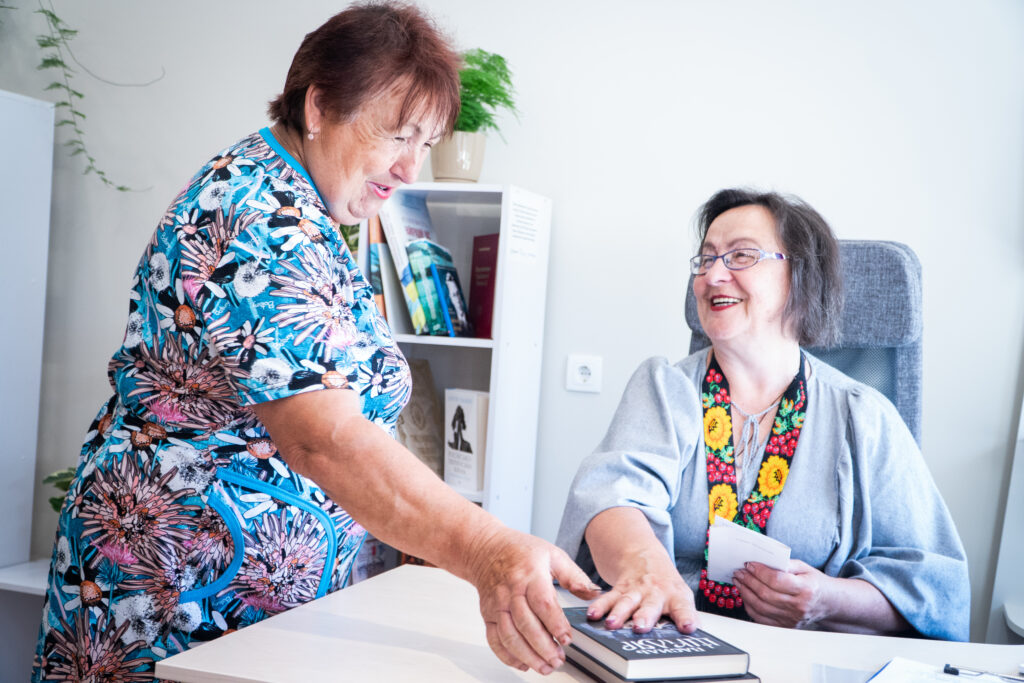
— And I also need your year of birth. You can tell it in my ear, says Nataliia Vasylenko.
— Oh, I’m not ashamed of it, it’s 1956, replies Nadiia Serhiivna.
Although the official opening was scheduled for 10 a.m., residents began to gather already at 9 a.m. Mothers with children, teenagers, adults, and pensioners. They all found something to their liking: from toy books to historical essays about the establishment of Ukraine. All visitors were surprised right away, as they did not recognize the premises.
BACKGROUND
In 2022, the village of Rudnytske was occupied by russian troops. During their retreat, they burned down a local school, shelled some other infrastructure facilities, and destroyed or damaged the private houses of residents. They also broke into the library. They smashed down doors and walked over the flag and books about the independence of Ukraine. The club premises, where the library was located, were also damaged. Last year, the donors’ help allowed to establish a creative space for Rudnytske children in the club. The next step was the library restoration.
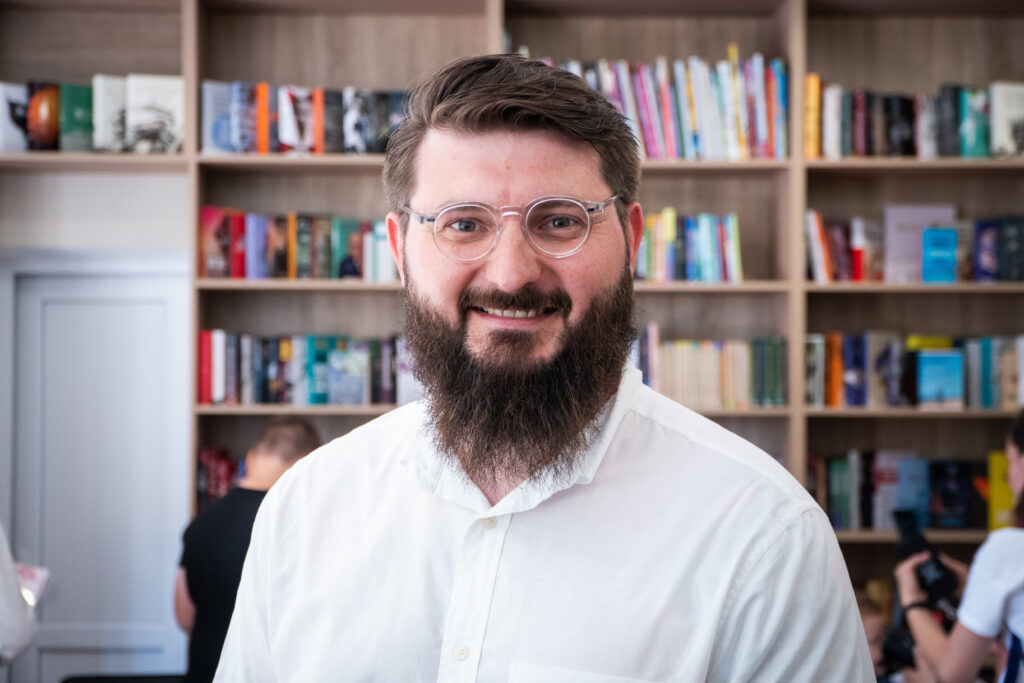
“When the invading troops retreated, we helped to reconstruct some houses. And then we learned that the invaders lived in the school. The school is no longer subject to restoration. There was a respective request from the community residents to create a space allowing for some educational services to be granted and for their development. ISAR Ednannia, the Partnership Fund for a Resilient Ukraine, and MHP-Gromadi established a nice library, with laptops for any visitor to use to work or study, quality Ukrainian literature, and the first book presentations. Our joint efforts transform Rudnytske into a village people want to live in,” comments Oleksandr Pakholiuk, director of the MHP-Gromadi Charitable Foundation.
RESTORED LIBRARY
The library underwent a complete renovation (walls, ceilings, floors), and new furniture, gadgets, and a certain amount of books were procured. The project was implemented within the grant competition “Promoting Public Participation in Early Restoration Processes Held in the Liberated Territories,” which is administered by ISAR Ednannia and supported by the Partnership Fund for a Resilient Ukraine, financed by partner countries in cooperation with the MHP-Gromadi Charitable Foundation.
Upon the residents’ request, the MHP-Gromadi team prepared a grant for the library restoration and got funding from donors. It took almost six months to restore the library.
“Our heroes of the Armed Forces of Ukraine allow us to help restore communities. People stay here, and most of them need support. They need to realize that life goes on. That they are not alone, and Ukraine supports them,” noted Anastasiia Shpakovych, a monitoring and assessment expert at ISAR Ednannia.
At the opening of the library, there was a presentation of the book “Piddubnyy. Victories and unforgiven love for Ukraine” attended by the co-author, Serhii Smahliuk. The donors also plan 3–5 more events for residents in the summer — book presentations, literature-based readings, and poetry evenings.
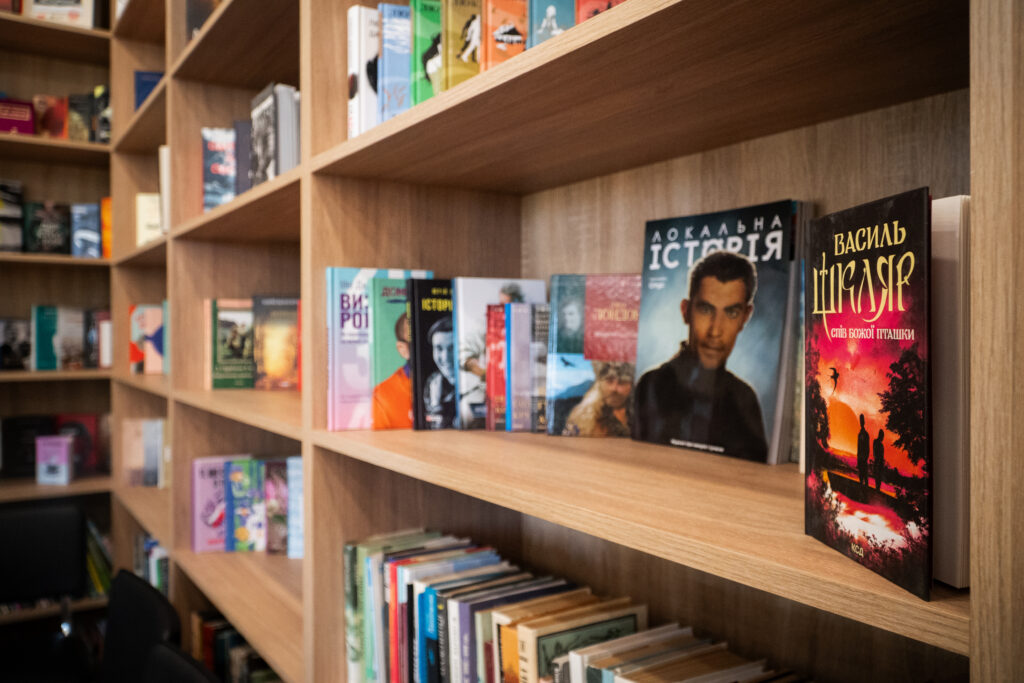
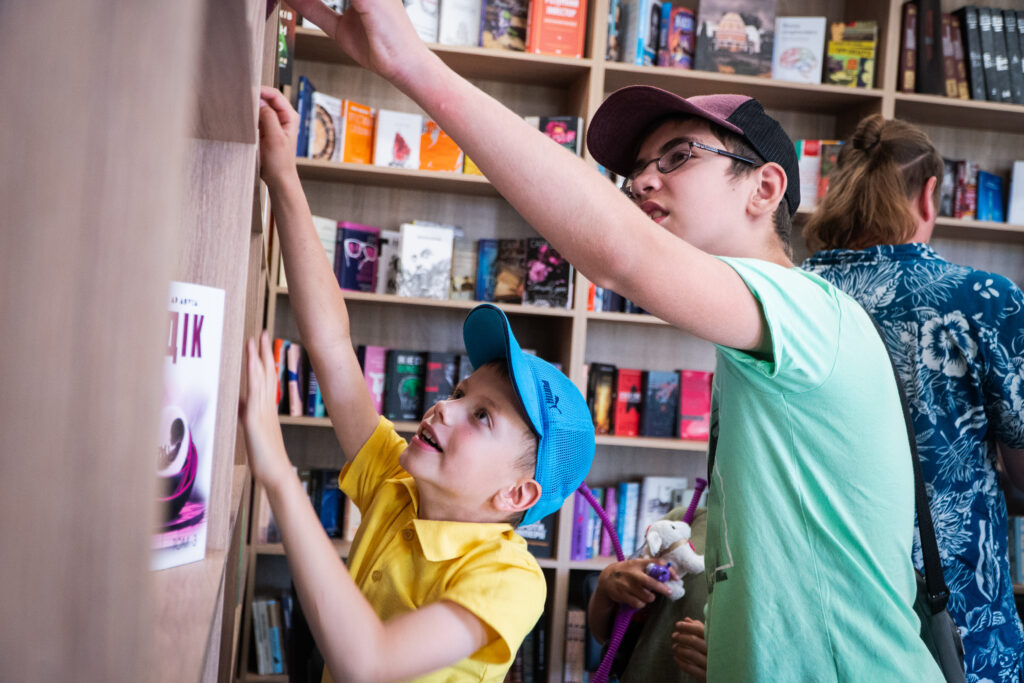

Currently, the library collection includes more than 1,000 items. There is a separate section with children’s literature: toy books, coloring books, children’s encyclopedias, fairy tales, etc. Modern foreign authors are also available: Fredrik Backman, Laura Dave, Andrzej Sapkowski, J. Rowling, and others. Dozens of books by modern and classic Ukrainian authors: from Viktor Domontovych, Lesia Ukrainka, and Ivan Franko to Lina Kostenko, Yaroslav Hrytsak, Artem Chekh, Andrii Kokotiukha, and Oksana Zabuzhko.
“We held a survey before the library restoration. Residents filled out more than 150 questionnaires, where they specified authors and literature they would like to read. They all had one common requirement — only Ukrainian-language books. Many adults asked for detective stories by Andrii Kokotiukha, children — a series of books about Judy-Moody. When ordering books, we took these requests into account, as it is important for us to create a space interesting for visitors, so that they come willingly, purposefully, and not by chance,” adds Nataliia Vasylenko, the head of the branch library in the village of Rudnytske.
However, we need many more books as a full-value library collection for such a settlement should include over 5–6 thousand titles, says the head. Thus, residents are determined to continue organizing charity campaigns and meetings with authors to add books to the library collection, as well as attracting volunteers — whatever it takes — so that the library is fully operational and becomes an important educational center in Rudnytske.
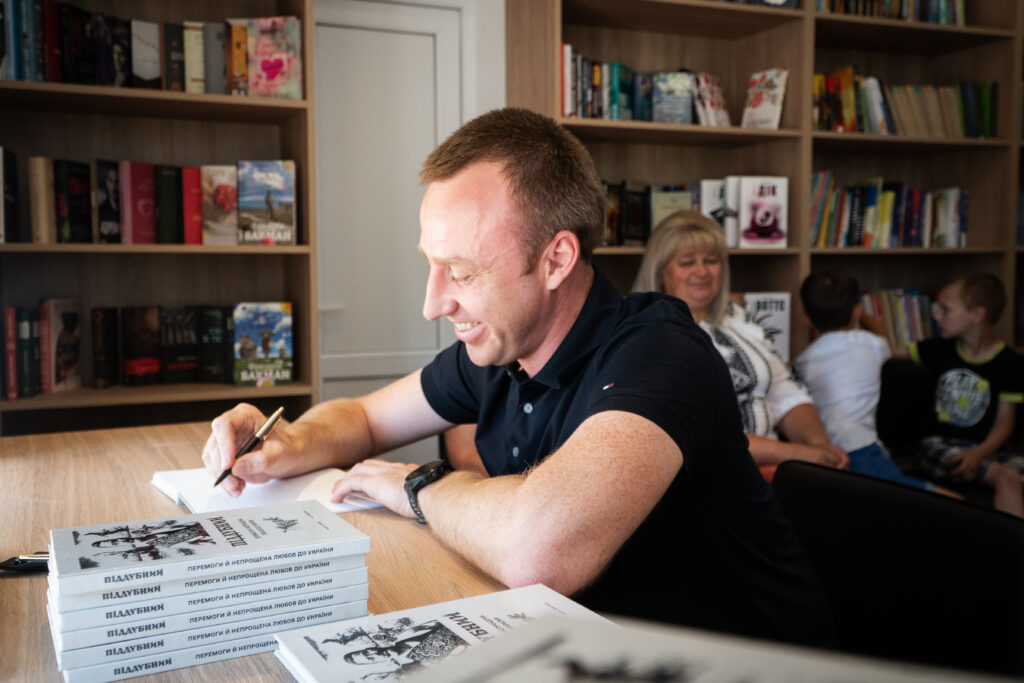
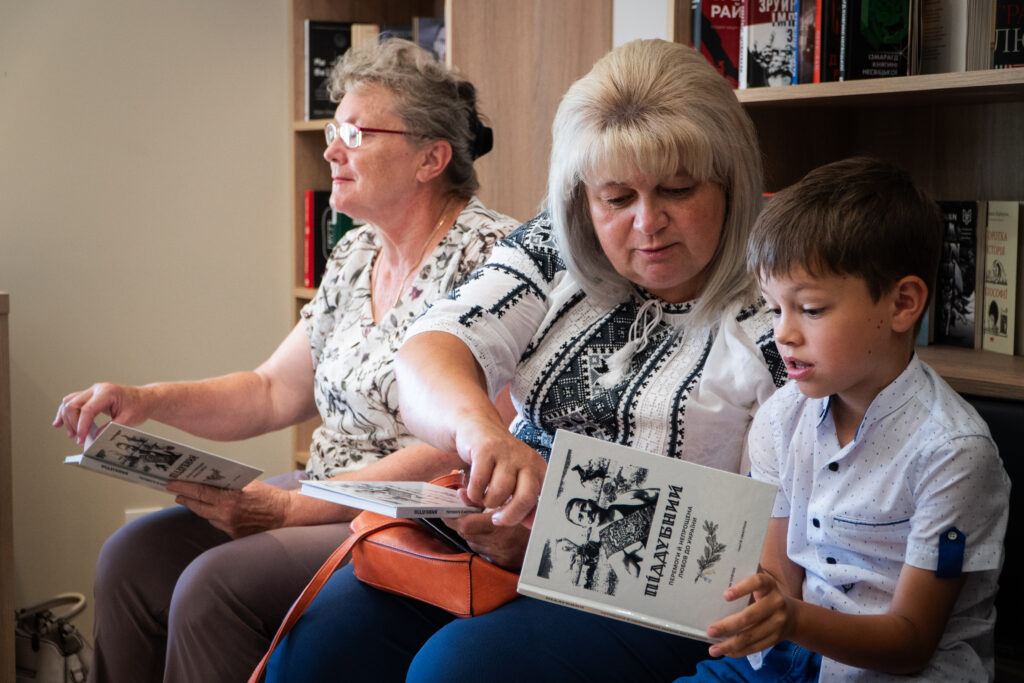

The project “Library Restoration for the Residents of Baryshivka Community, the village of Rudnytske” is implemented within the grant competition “Promoting Public Participation in Early Restoration Processes Held in the Liberated Territories,” which is administered by ISAR Ednannia and supported by the Partnership Fund for a Resilient Ukraine, financed by partner countries in cooperation with the MHP-Gromadi Charitable Foundation.
MHP-Gromadi is a national charitable foundation that was launched in 2015. Its main mission is to foster comprehensive community development to make them desirable places to live in. Its operational geography includes 13 regions of Ukraine: more than 700 towns and villages. Since the beginning of Russia’s full-scale invasion of Ukraine, the Foundation has been systematically supporting people in the war zones: Ukrainian defenders and rescuers, communities, hospitals, and maternity homes; charitable institutions that care for orphans and the elderly; and people who have lost their homes and livelihoods due to the war.